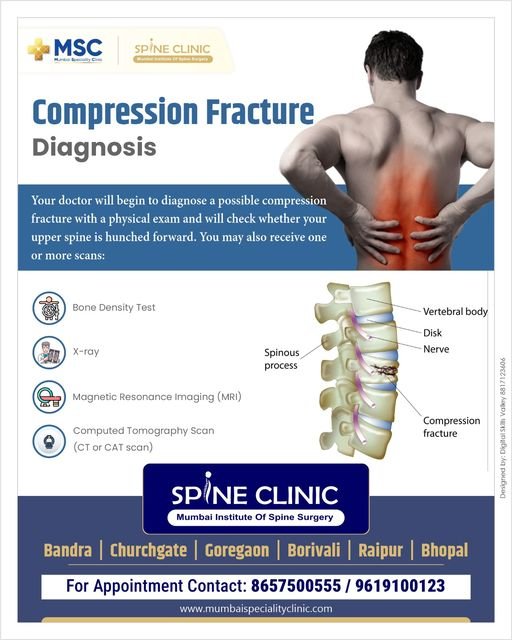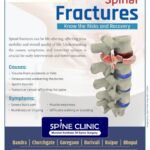Compression fractures are a common type of spinal injury, particularly in individuals with weakened bones due to osteoporosis. These fractures occur when the vertebrae in the spine collapse, which can lead to severe pain and other complications. Early diagnosis and treatment are crucial for effective management and recovery.
What is a Compression Fracture?
A compression fracture happens when one or more vertebrae in the spine are compressed or collapsed. This can be due to various factors, including osteoporosis, trauma, or metastatic diseases. Compression fractures can lead to a loss of height, a hunched posture, and severe pain, especially in the lower back.
Diagnosing a Compression Fracture
Diagnosing a compression fracture involves a combination of physical examination and imaging tests. Here’s how your doctor might proceed:
- Physical Examination: The doctor will start with a thorough physical exam, checking for signs such as a hunched forward posture or localized pain in the spine.
- Bone Density Test: This test helps determine the strength of your bones and assess the risk of osteoporosis, which is a common cause of compression fractures.
- X-ray: An X-ray can reveal the presence of fractures and the extent of any bone collapse in the vertebrae.
- Magnetic Resonance Imaging (MRI): MRI scans provide detailed images of the spine’s soft tissues and can detect nerve damage or other complications related to the fracture.
- Computed Tomography (CT) Scan: CT scans offer a more detailed view of the spine’s bone structure and can help in assessing the severity of the fracture.
Treatment Options
Treatment for compression fractures depends on the severity and cause of the fracture. Here are some common treatment approaches:
- Pain Management: Medications such as pain relievers and anti-inflammatory drugs can help manage pain.
- Bracing: Wearing a brace can help stabilize the spine and reduce pain during movement.
- Physical Therapy: Specific exercises can strengthen the muscles supporting the spine and improve mobility.
- Surgery: In severe cases, surgical options like vertebroplasty or kyphoplasty may be considered to stabilize the fracture and relieve pain.
Seeking Professional Help
If you suspect a compression fracture or experience symptoms such as severe back pain, loss of height, or a hunched posture, it’s essential to seek medical advice promptly. The Spine Clinic at Mumbai Institute of Spine Surgery specializes in diagnosing and treating spine-related conditions, including compression fractures. With locations in Bandra, Churchgate, Goregaon, Borivali, Raipur, and Bhopal, the clinic provides expert care and comprehensive treatment plans.
For appointments, contact: Phone: 8657500555 / 9619010123
Website: Mumbai Specialty Clinic
Early diagnosis and appropriate treatment can significantly improve outcomes for individuals with compression fractures. Stay proactive about your spine health by recognizing symptoms and seeking timely medical attention.














